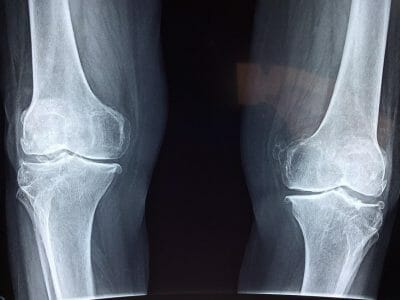Although not a catastrophic injury, knee wounds are painful and can make you temporarily disabled. These injuries typically occur from high-impact trauma to the knee. When injured, the knee can become bruised, swollen, and misshapen. You may be unable to walk because of your knee injury, requiring you to take time off from work.
If you believe you experienced a knee injury in a car accident, it is advisable to seek medical attention. Have your doctor perform an x-ray or imaging scan to identify what the problem is with your knee. Then consider consulting a car accident attorney to discuss how to recover damages for your injuries. Here are types of knee injuries you are likely to experience after a car accident.
Ligament Tears
A car accident can cause the ligaments in your knees to tear from the impact. The main ligaments that can get injured include the anterior cruciate, posterior cruciate, and medial collateral ligaments. Ligaments are strong bands of tissue that connect bones. They facilitate your movement and help you bear weight. When there is a ligament injury, you can feel or hear popping in your knee. It can also be difficult to bear weight on your knees.
Cartilage Tears
One of the most common knee injuries is meniscus tears. Your meniscus is a rubbery, C-shaped piece of cartilage that functions as a shock absorber. It is located between the shinbone and thighbone and can get damaged during a car accident. Other cartilage tears can also occur on the inside and back of the knee. Some of the symptoms of torn knee cartilage include the inability to fully bend or extend your knee, swelling, pain, and locking joints.
Dislocated Joints
A dislocation occurs when two bones separate at the joint that facilitates movement. Dislocated joints in the knee typically happen between the thigh bone and shin bone. Your knee cap can also become dislocated. You can tell if your knee is dislocated because of severe pain, limited range of movement, swelling, and popping sounds. If your knee is unstable and gives way when you stand on it or the shape looks deformed, these could be signs of dislocation.
Signs that Your Knee Is Injured
After your car accident, you should talk to a doctor—even if you don’t believe you are injured. If your knee is injured, you should seek medical care immediately to prevent further damage. Here are some of the most common symptoms you experience when your knee is injured.
Limited Mobility
If your knee is seriously injured, you will be unable to turn, pivot, jump, and bend the way you normally do. It can be difficult for you to lift anything or do fitness-related activities if the damage is severe.
Severe Pain
You may feel stabbing pain in the front, side, and back of the knee that is injured. The pain can also make it difficult to move. In some cases, the pain may not appear until you stand up or try to bear weight on the injured knee.
Fluctuating Temperatures
The temperature of your injured knee may be different from your unharmed one. Your injured knee could feel hot or warm around the joints if it is swollen or inflamed. The surface of your knee may also appear red and puffy due to inflammation.
When Should I Speak to an Attorney About My Knee Injury?
After you’ve paid medical bills, endured pain and suffering, dealt with property damage, and missed time off from work, you should contact a car accident attorney and inform them of your situation. An attorney can calculate your past and future missing income. Your ongoing costs of healthcare will also be included in your damages.
Your attorney can estimate the costs of physical therapy, prescription medicine, and other expenses you have paid and expect to cover in the future. Any pain and suffering you endured, such as PTSD, anxiety, or depression will also be estimated by your car accident lawyer. They’ll help you receive compensation for your losses and seek a settlement from the liable party.
